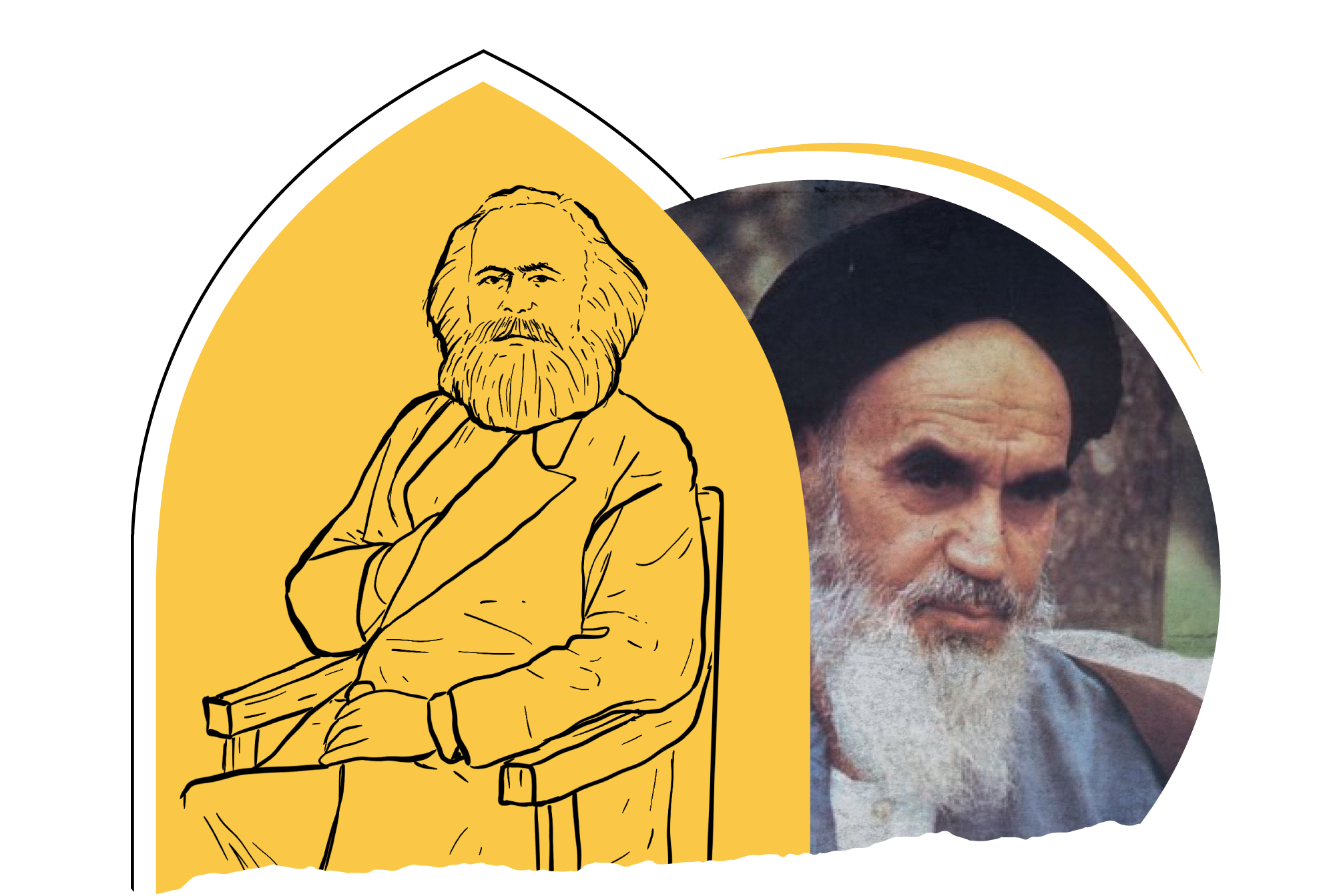
Esotericism and Khomeinism
Rotten Trunk of a Malignant Tree
Prior to elaborating on the dialectical relationship between Khomeinism and Esotericism, it is essential to note that the latter is not a political organization or an established institutional structure, but rather a system of ideas in which millions believe. Its survival and spread were due to being embraced by the Persian state, which considered it a means and tool to annihilate Islam from within, especially after the Persians were certain that the results of any direct confrontation with the Muslim Arabs are predetermined.
In this context, esotericism continued with the persistence of the Persian state. The political goals of both parties intersected in eliminating Arab Islam and empowering the Persian race, which is the sublime political goal that can only be achieved through legitimizing the system of interpretation of the religious text in a way that serves the Persian agendas in the region.
Khomeinists benefited from esoteric thought and adopted its strategy of exporting thoughts and ideas, in preparation to entering those areas. Following the esoteric approach as adopted by those who were falsely called the Fatimids, Khomeinists sought to penetrate Arab societies and keep up with their customs and traditions, good or bad. They did not stop there, but sought religious interpretations with a view to legitimize a group of abnormal practices.
Stemming from that strategic identification between both branches of the same tree, the new esotericists followed the approach of Ismaili Fatimids, who used to send “skillful trained preachers, who avoid confrontation and provocation of the target communities, take advantage of people’s innate love for the Prophet’s family. They also established scientific centers and worked on qualifying preachers for the esoteric doctrine. Very quietly they isolated Sunni scientific and judicial authorities and replaced them with esoteric ones”.
Esoteric interpretation and work to adapt Qur’anic text has produced extremist and terrorist organizations, no matter how they falsely try attribute themselves to Sunnis or Shiites alike. Islam is clear and easy to memorize and understand. It is, therefore, an argument against everyone, with no need for any detailed elaboration of its meanings, except in the areas of linguistic and scientific miracles. This is why the Holy Quran keeps pace with the development of times and the reality of man.
Khomeinism was impacted by esotericism approach and by philosophical schools, utilizing their principles to achieve political goals. Khomeini was also influenced by Marxist thought regarding dealing with the masses and leading them by adopting their slogans, even if they were wrong. The writings of Marx and Engels unanimously agree on the need to keep pace with the masses, even if they are heading towards destruction, on the basis of dimensional clarification and re-framing according to the original approach of Marxist theory pertaining to the necessity of having a vanguard party or a “revolutionary vanguard.
Khomeinist school is nothing more than an extension of esoteric thought through its attempts to monopolize the interpretation of religious text, restricting that privilege to the jurist holy person. This is how that “political” doctrine has professionalized religion for its objectives. It is established that, by tracing the impacts of Khomeinism; i.e., that they followed the esoteric approach and their method in luring followers. They are still a supporter of every invader who attacks Muslims, from the Tatars to the Crusaders and to the British who were supported by the head of esotericism in in India, the Aga Khan. They are now in Syria and Lebanon, crawling with their activity towards countries Arab and Islamic regions, in which the activities of the Sunni preachers are fading, with the encouragement of the Khomeinist state”.
It can be asserted that the danger of the new esotericists lies in their sectarian penetration and exploitation favor their ethnic goals, as well as for their existential war against everything related to Islam. The wickedness of the “new esoteric conquest” has reached the level of “cooperation” with the colonialists, carrying various slogans, the most prominent of which is the esoteric slogan, with the aim of conspiracy.
The alliance of the mullahs’ regime with the United States of America to invade Iraq is no different from the collusion of Minister Ibn Al-Alqami with the Tatars against the Abbasid state. Both parties contributed to the fall of Baghdad and the spread of savagery and chaos in the historical capital of the Abbasid state.
The late King of Morocco, Hassan II, had previously warned of the danger of Khomeini’s thought. Morocco declared him apostate with a legal fatwa in view of the distortions that Khomeini brought, including that the imam has a level of sanctity that renders him in a position higher than a selected king or a prophet. Perhaps that position is key in view of its strong symbolism, given that the ruling family in Morocco ends its lineage to the honorable Prophet’s family. However, they disavowed the mullahs’ regime that exploits the slogan of loyalty to the Prophet’s family to implement a malicious agenda that primarily aims at eliminating Islam and establishing the race.
Esotericism intersected with Persian racism and both endeavored to destroy the Arabs and Muslims nation

In entirety, it can be said that “Islam and all its sects that entered Persia… were distorted and altered, because the purpose was not to adopt this or that doctrine, … Rather, the intention was to exploit it and raise as a slogan against the Islamic state and its correct creed”.


- Manea Al-Juhani, Easy Encyclopedia of Doctrines and Religions, 4th Edition (Riyadh: Al-Nadwa Al-Alamiyah Printing, Publishing and Distribution House, 2000).
- Martin Vanessa, Creating an Islamic State: Khomeini and the Making of a New Iran, Journal of King Faisal Center for Studies and Research, p. 3, 4 (2010).
- Muhammad al-Khatib, Esoteric Movements in Islamic World (Amman: Dr. N, 1986).
- Mohammad Abdullah Anan, History of Secret Societies and Destructive Movements in the East (Cairo: Al-Mukhtar Foundation, 1991).

